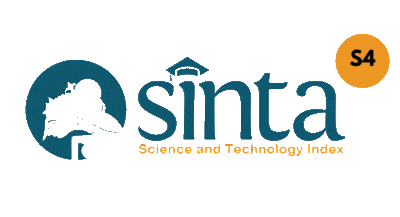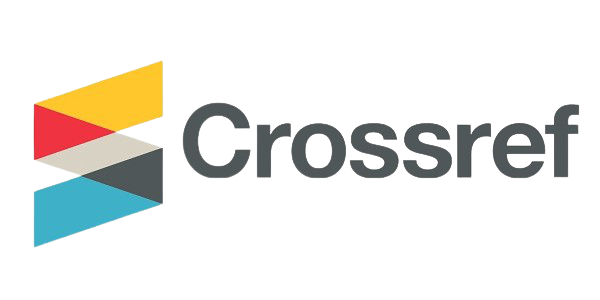Pengembangan Potensi Desa Salamrejo dan Proses Pembelajaran Efektif Bagi Anak Dan Orang Tua Selama Pandemi
DOI:
https://doi.org/10.24002/jai.v1i4.3938Keywords:
Kuliah Kerja Nyata, Geography Territorial, Industrial Classification, Learning, Online, InternetAbstract
Kuliah Kerja Nyata (KKN) is a course in the form of activities that combines the implementation of the three basic pillars (tri dharma) of higher education. The purpose of this KKN program is to provide knowledge to residents of Sentolo District, Salamrejo Village regarding the potential that exists in the village. The work programs implemented are village potential work programs and pocket book work programs which are implemented using a qualitative approach based on references in the form of journals obtained from the internet. The result of this work program is a proposal in developing the potential of villages in Salamrejo Village in the form of counseling related to the development of natural fiber crafts based on industrial classification and the development of tourist destinations which are carried out with several regional geographic approaches as well as a pocket book work program which is counseling related to tips or supporting factors. in order to create `` the effectiveness and efficiency of online learning during the pandemic period '' for children and parents by using the Internet.
References
Ardianto, E., Komala, L. & Karlinah, S. (2012). Komunikasi Massa: Suatu Pengantar. Edisi Revisi. Bandung: Simbiosa.
Jensin, A. H. (2003). Geography History & Concepts. London: Sage Publications.
Bintarto & Hadisumarno, S. (1991). Metode Analisis Geografi. Jakarta: LP3ES.
Fandeli, C. (2001). Dasar- dasar Manajemen Kepariwisataa Alam. Yogyakarta: Liberty.
Delfanti et al., (2018). Restriction Spectrum Imaging Improves Risk Stratification in Patients with Glioblastoma. The New England Journal of Medicine, 372(2), 2499-2508
Hadjam, I. (1977). Geografi Ekonomi. Yogyakarta: FKIS IKIP Yogyakarta.
Saleh, I. A. (1986). Industri Kecil, Suatu Tijauan Perbandingan. Jakarta: LP3ES.
Leiper, N. (1990). Tourism System: An Interdisciplinary Perspective. Depatement of Managament System, Business Studies Faculty, Massey University, Palmerston North, New Zealand.
Maryanto, A. (2007). Industri Tenun ATBM DI Desa Sumberahayu Kecamatan Moyudan Kabupaten Sleman. Yogyakarta: FISE UNY.
Nasution, M. K. (2017). “Penggunaan metode pembelajaran dalam peningkatan hasil belajar siswa,” Stud. Didakt. J. Ilm. Bid. Pendidik, 11(1), 9–16.
Oka, Y. A. (1997). Perencanaan dan Pengembangan Pariwisata. Jakarta: PT Pradnya Paramita.
Piliang, Y.A. (2011). Dunia yang Dilipat. Bandung: Matahari.
Raharjo, D. (1984). Transpormasi Pertanian, Industrialisasi dan Kesempatan Kerja. Jakarta: UI.
Sandy, I. M. (1985). Republik Indonesia Geografi Regional. Jakarta: Depdikbud.
Santrook, J.W. (2012). Life-Span Development: Perkembangan Masa Hidup. Jakarta: Erlangga.
Setiyani, R. (2010). Pemanfaatan Internet Sebagai Sumber Belajar, Jurnal Dinas Pendidik Unnes, 5(2), 117–133.
Downloads
Published
Issue
Section
License
Copyright (c) 2021 Puspaningtyas Panglipurjati

This work is licensed under a Creative Commons Attribution-ShareAlike 4.0 International License.










